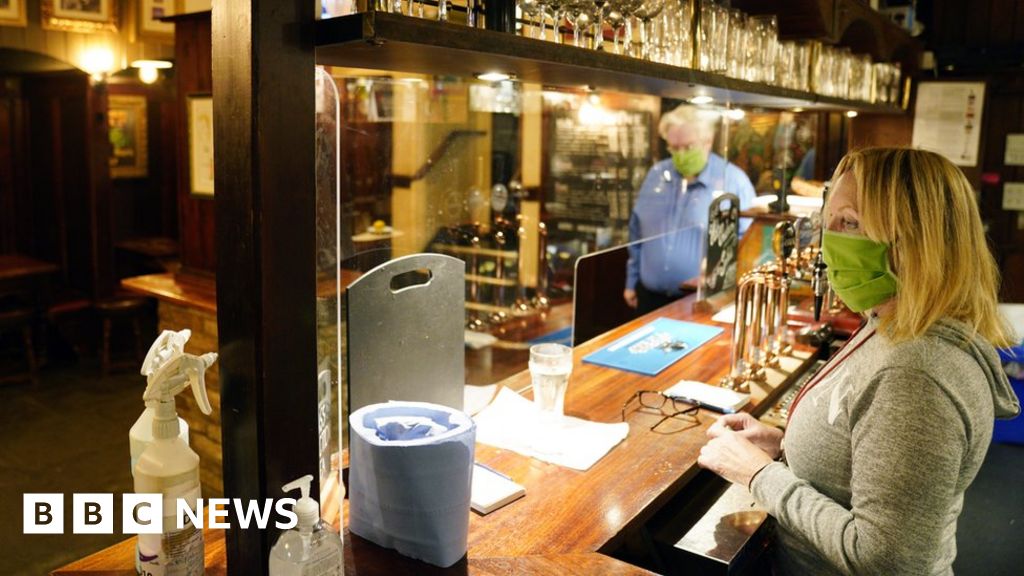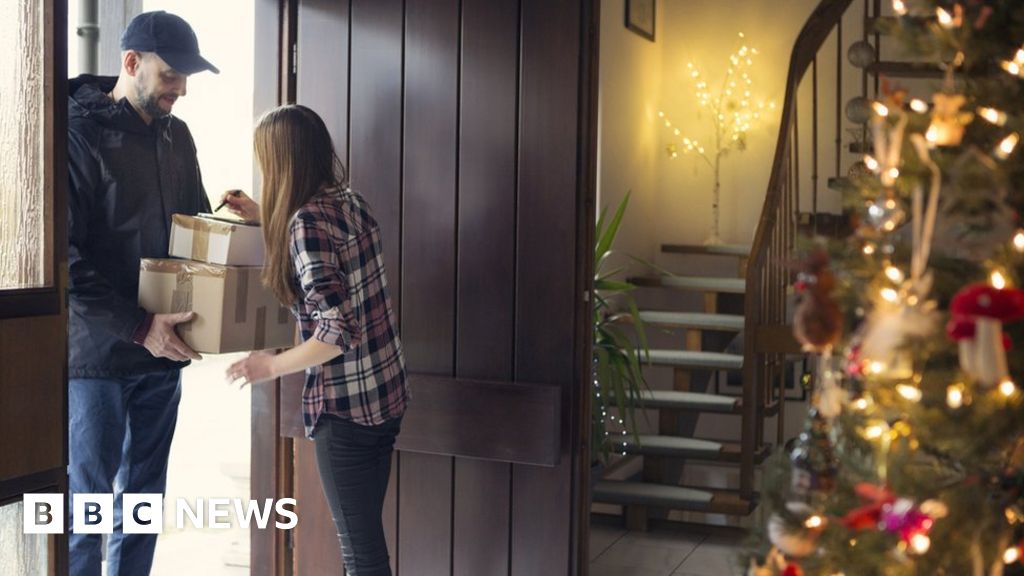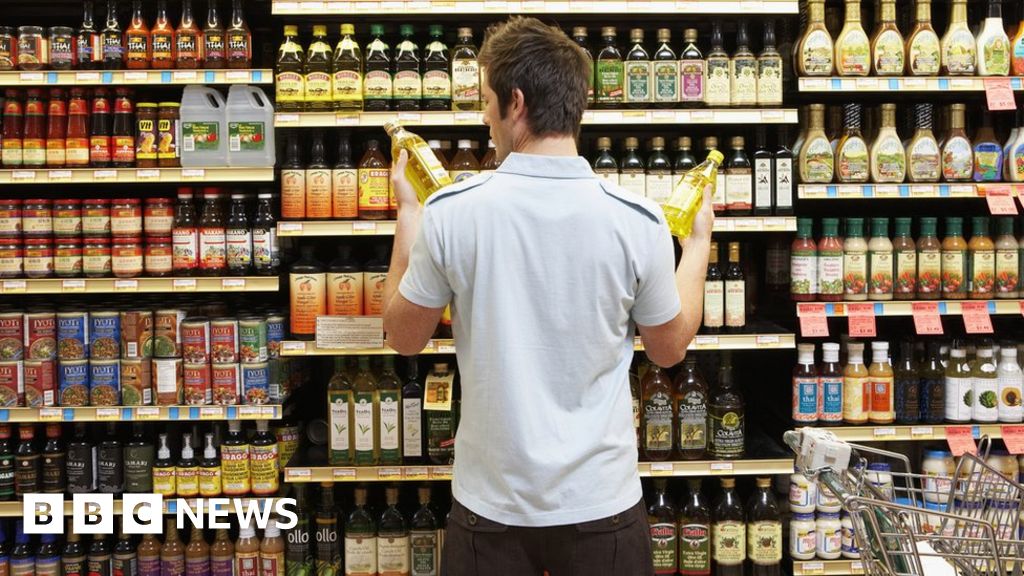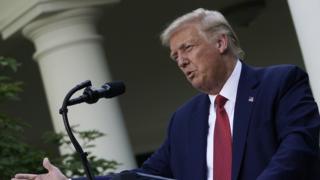 Image copyright
Getty Images
Image copyright
Getty Images
US President Donald Trump has signed an order to end preferential treatment for Hong Kong, as his administration adopts an increasingly tough stance on China.
"Hong Kong will now be treated the same as mainland China," the president told reporters at the White House.
Mr Trump said he had also signed bipartisan legislation to impose sanctions on Chinese officials who crack down on rights in Hong Kong.
The ex-British colony enjoys unique freedoms not seen in mainland China.
But many people in the territory fear a new security law imposed by Beijing will bring an end to Hong Kong's special status, agreed under a 1984 pact between China and the UK.
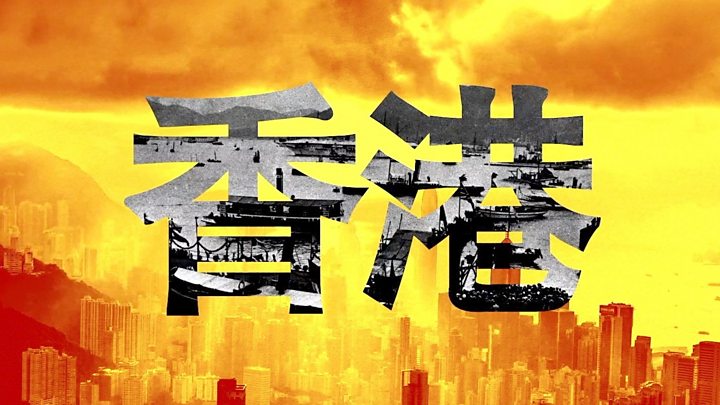
Media playback is unsupported on your device
The legislation - which outlaws criticism of China's government - is the most sweeping change to the political landscape of Hong Kong since it was handed back to China by the UK in 1997.
What did President Trump say?
Speaking in the Rose Garden, Mr Trump said his executive order would end preferential treatment for Hong Kong.
"No special privileges, no special economic treatment and no export of sensitive technologies," said the president, who first announced in May that his administration would begin paring back the territory's special status.
He also told reporters he had signed the Hong Kong Autonomy Act, which passed unanimously in Congress earlier this month.
"This law gives my administration powerful new tools to hold responsible the individuals and the entities involved in extinguishing Hong Kong's freedom," Mr Trump told the news conference.
The president said when asked by a journalist that he had no plans to speak to Chinese President Xi Jinping.
He told reporters that "we hold China fully responsible for concealing the virus and unleashing it upon the world".
Mr Trump's own administration is under scrutiny for its response to the coronavirus pandemic - the US has 3.4 million recorded cases, the highest in the world.
The president's policy address digressed into a lengthy political attack on his Democratic presidential challenger, Joe Biden, ranging from trade and immigration to policing and climate change.
"So Joe Biden and President Obama freely allowed China to pillage our factories, plunder our communities and steal our most precious secrets," the president said.
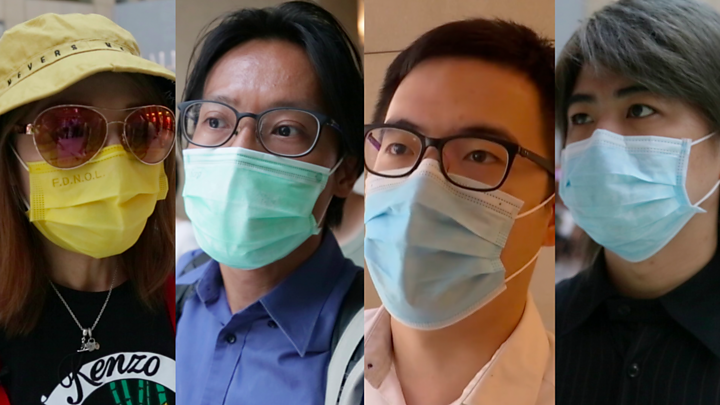
Media playback is unsupported on your device
What would ending Hong Kong's special status mean?
The move could cause a major corporate headache for more than 1,300 US companies that operate in the territory.
US citizens who currently enjoy visa-free travel to Hong Kong could also face much tougher Chinese visa restrictions.
Hong Kong would be expected to lose its special lower American tariff rate, throwing some tens of billions of dollars in annual trade between the US and the territory into doubt.
Hong Kong's status as a global financial hub - and as China's gateway to key international financial markets - could also be eroded.
Hong Kong's new security law
What is going on with US-China relations?
Washington-Beijing ties have become increasingly frayed in recent months.
With Mr Trump facing an uphill battle for re-election this November, he and his Democratic challenger, Joe Biden, have accused each other of being weak on China.
On Monday, the administration rejected China's military build-up in the South China Sea, accusing it of bullying neighbours.
Last Friday, Mr Trump told reporters on Air Force One that a "phase two" trade deal with China was in doubt because of its handling of coronavirus.
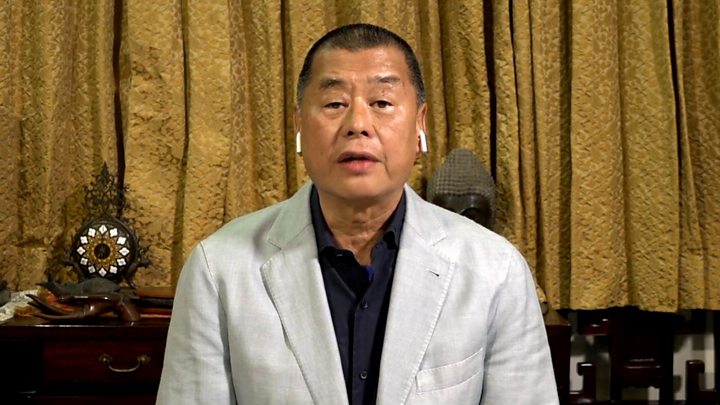
Media playback is unsupported on your device
"The relationship with China has been severely damaged," he said. "They could have stopped the plague, they could have stopped it, they didn't stop it."
The US also officially withdrew last week from the World Health Organization, which Mr Trump had accused of being beholden to China.
Last week, too, the Trump administration announced sanctions against Chinese politicians who it says are responsible for human rights violations against Muslim minorities in Xinjiang.

 5 years ago
628
5 years ago
628 